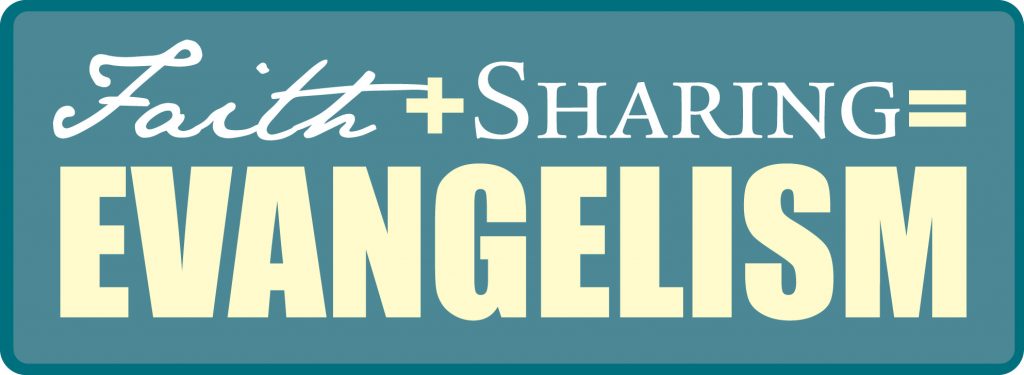By Ed Thompson
I was at a meeting recently where a woman complained “The Presbyterian Church doesn’t do evangelism very well.” She sounded angry, frustrated, disappointed, maybe all of the above. I could only agree. We don’t do evangelism very well. Maybe we never have, at least in my lifetime. I’m not sure we ever mentioned the “e” word while I was in seminary. If they did, I must have skipped class that day.
However, when I was going home, I started thinking about that remark. That’s probably where we do our best thinking, either in the parking lot after the meeting or in the car on the way home.
Here’s what I would have said if I had thought about it soon enough or what I may say when I hear someone say something like that again. (It’s bound to happen. Pre-pandemic, it seemed like I heard that at least once every other month.) So, maybe the Presbyterian Church doesn’t do evangelism very well, but whose responsibility is it?
It’s easy to blame Louisville, using the location of our national offices as a way of referring to the denomination. We don’t necessarily spend a lot of money on evangelism. It doesn’t seem to be a priority. Maybe it should be. We could shift money around, hire staff, develop programs, write curriculum, sponsor conferences. We could be doing a lot more. Doing all that, however, won’t necessarily have an impact on your church and your community. It might, if you’re paying attention, if you take advantage of those opportunities, if you’re willing to do something about it. At this point, the national church seems, for better or worse, to be focusing on other areas. How much are you paying attention and taking advantage of those opportunities?
Maybe our Synod should be doing more on evangelism. You could make that case. Again, they could make that a priority in order to hire staff, develop programs, write curriculum, and sponsor conferences. That could happen. Doing all that, however, won’t necessarily have an impact on your church and your community. How much attention, though, do you pay to what the synod is doing now? Do you take advantage of the opportunities that the synod offers now?
Certainly, our presbytery could do more in terms of evangelism. We could rewrite job descriptions or draw on our reserves to hire some specialized staff. We could give that responsibility to an existing committee or form a new committee with that focus. Doing all that, however, won’t necessarily have an impact on your church and your community.
You could also blame your church. Every congregation could be doing more, and certainly they could all be doing a better job in terms of evangelism. At the end of the day, though, who does evangelism? If you want to know who should be doing evangelism, all you need to do is look in the mirror.
Yes, the Presbyterian Church at all levels could be doing a better job of evangelism. But there is nothing in the Book of Order that says, “Presbyterians should keep their mouths shut.” There have been no reports adopted by the General Assembly that say, “Presbyterians should refrain from praying.” There are no presbytery policies that say, “Presbyterians shouldn’t share their faith.” The session of your church isn’t telling you that you can’t do evangelism. They would probably be excited if you wanted to do something about it.
 There is nothing stopping you from doing evangelism except you. What are you doing – or perhaps what are you willing to do when it comes to evangelism? I suppose you could complain, “Well, I don’t know what to do.” Fair enough. I would say you start with prayer. Not to change the minds of other Presbyterians so that they do the work for you, but to ask God to show you what you can do, who you could talk to, and what to say. Maybe even more than praying for words to say, maybe you could ask for the humility to listen to find out what people need and what they are looking for.
There is nothing stopping you from doing evangelism except you. What are you doing – or perhaps what are you willing to do when it comes to evangelism? I suppose you could complain, “Well, I don’t know what to do.” Fair enough. I would say you start with prayer. Not to change the minds of other Presbyterians so that they do the work for you, but to ask God to show you what you can do, who you could talk to, and what to say. Maybe even more than praying for words to say, maybe you could ask for the humility to listen to find out what people need and what they are looking for.
You could also search for books to read. You could ask other people how they share their faith or how they do evangelism. You could also walk down the street and talk to the people you meet at the grocery store or in the park. Instead of leading with a monologue about how great Jesus is – which even though that may be true, it certainly seems like a turnoff to people outside the church – it would be better to start with listening, to get to know people and be able to understand what their needs are and where they’re coming from.
We could say the same thing about social justice, racism, hunger, or any other topic. It’s easy to complain that our national offices, our synod, our presbytery, or the local church isn’t doing enough in any of these areas. Whatever they may be doing or not doing, however, isn’t going to translate into action in your church or your community unless someone there does something about it. Let me suggest that that someone can be you.

